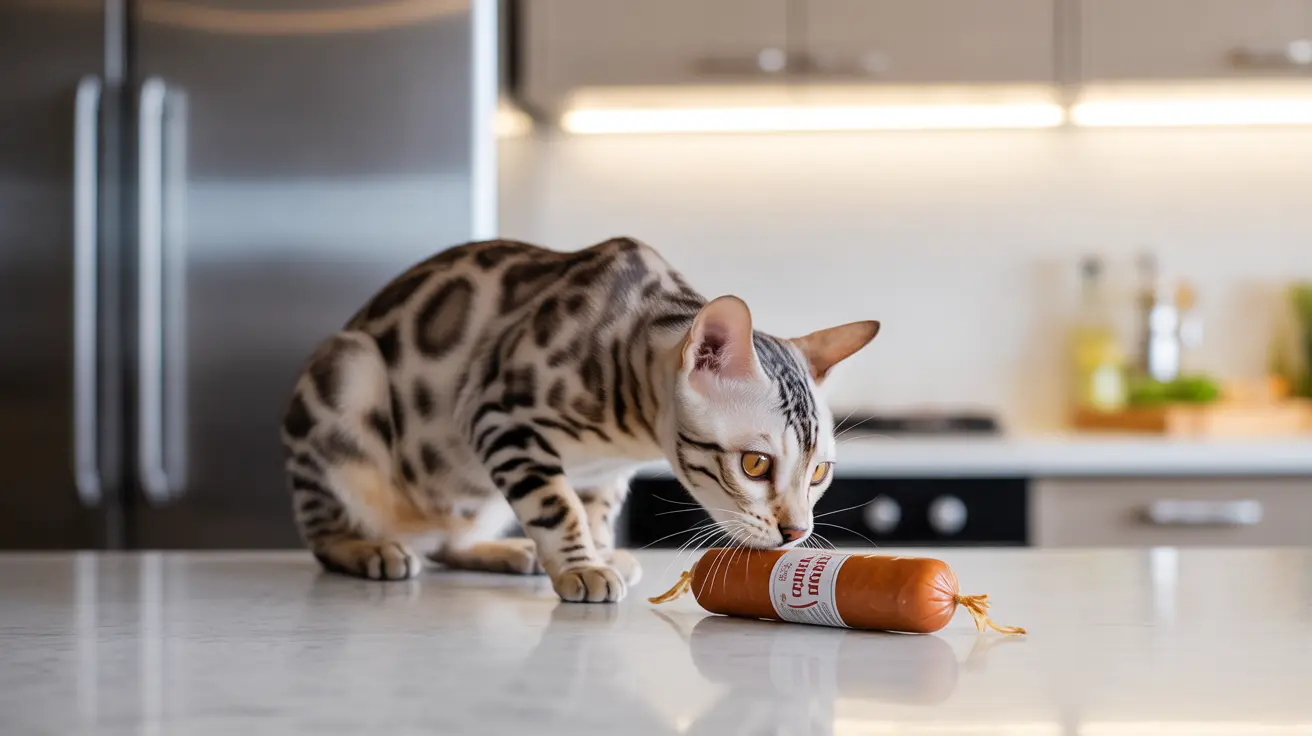Understanding Vienna Sausages and Your Cat's Health
As cat owners, we often wonder about sharing human foods with our feline friends. Vienna sausages, those small, processed meat products found in many pantries, might seem like a tempting treat for cats. However, veterinary experts warn that these processed meats can pose significant health risks to our feline companions.
In this comprehensive guide, we'll explore why Vienna sausages aren't suitable for cats, what risks they pose, and what safer alternatives you can offer instead. Understanding these factors is crucial for maintaining your cat's health and well-being.
The Dangers of Vienna Sausages for Cats
Harmful Ingredients
Vienna sausages contain several ingredients that can be dangerous for cats:
- High sodium levels that can lead to salt poisoning
- Garlic and onion powder, which are toxic to cats
- Preservatives and additives that can cause digestive issues
- Excessive fat content that may lead to pancreatitis
- Seasonings and spices that can irritate your cat's digestive system
Health Risks and Complications
Regular consumption of Vienna sausages can lead to several serious health issues in cats:
- Obesity from high fat and calorie content
- Kidney strain due to excessive sodium
- Digestive upset including vomiting and diarrhea
- Potential thiamine deficiency from preservatives
- Risk of anemia from garlic and onion compounds
Safe and Healthy Alternatives
Instead of Vienna sausages, consider these veterinarian-approved treats for your cat:
- Small pieces of plain, cooked chicken
- Commercial cat treats formulated for feline nutrition
- Freeze-dried meat treats specifically made for cats
- Small amounts of plain, cooked fish (occasional treat)
- Veterinary-approved dental treats
When to Contact Your Veterinarian
If your cat has consumed Vienna sausages, watch for these warning signs:
- Excessive thirst or urination
- Vomiting or diarrhea
- Lethargy or weakness
- Loss of appetite
- Unusual behavior or disorientation
Frequently Asked Questions
Can cats safely eat Vienna sausages occasionally without health risks?
No, even occasional consumption of Vienna sausages isn't recommended for cats. The high sodium content, harmful seasonings, and preservatives pose health risks even in small amounts.
What ingredients in Vienna sausages are toxic or harmful to cats?
The most dangerous ingredients include garlic and onion powder (which can cause anemia), high sodium levels, preservatives, and artificial additives. These components can be toxic or harmful to cats' health.
What are the health risks of feeding Vienna sausages regularly to cats?
Regular consumption can lead to obesity, kidney problems, salt poisoning, digestive issues, and potential anemia. Long-term exposure to preservatives may also cause thiamine deficiency.
What are better and safer meat treat alternatives for cats instead of Vienna sausages?
Safe alternatives include plain cooked chicken, commercial cat treats, freeze-dried meat treats specifically made for cats, and veterinary-approved dental treats.
How can I tell if my cat has eaten too much Vienna sausage and needs veterinary attention?
Watch for symptoms like excessive thirst, vomiting, diarrhea, lethargy, or unusual behavior. If you notice any of these signs after your cat consumes Vienna sausages, contact your veterinarian immediately.
Conclusion
While it might be tempting to share Vienna sausages with your cat, the risks far outweigh any potential benefits. Instead, focus on providing your cat with nutritionally appropriate treats and maintaining a balanced, species-appropriate diet. Always consult with your veterinarian about safe treat options for your feline friend.






